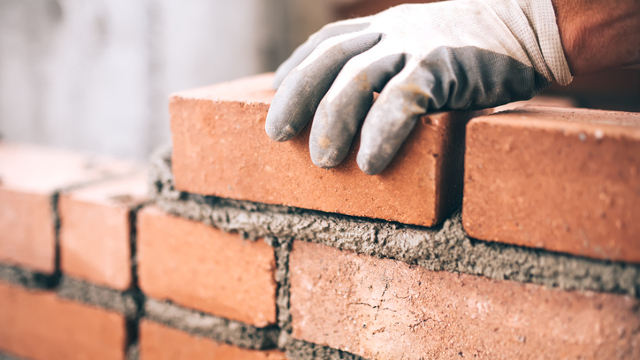ii view: Cost pressures hinder Taylor Wimpey
Build costs overshadow, but shareholder returns remain attractive. Should investors step inside?
26th February 2020 11:27
by Keith Bowman from interactive investor
Build costs overshadow, but shareholder returns remain attractive. Should investors step inside?

Full-year results to 31 December 2019
- Completions up 5% to 16,042
- Revenue up 6.4% to £4.34 billion
- Operating profit down 3.4% to £850 million
- Net cash balance down 15% to £546 million
- Total dividends paid over the year up 20%
Guidance for 2020:
- £610 million expected to be returned to shareholders in dividend payments
Chief executive Pete Redfern said:
"The group delivered a good performance in 2019, with a record sales rate and home completions increasing by 5%. During the year, we continued to strengthen our business and build a sustainable advantage, improving our core customer proposition and business flexibility through investments in customer service, quality, build capacity and direct labour. These investments will strengthen the business for the long term.
"In 2020, we will focus on further embedding and leveraging these improvements across the business while increasing our focus on cost discipline and process simplification.
"The new year has started well, with a good level of customer demand and a clearer political outlook."
ii round-up:
Formed from the merger of George Wimpey and Taylor Woodrow back in 2007, housebuilder Taylor Wimpey (LSE:TW). today reported results in line with its January trading statement.
Operating profit retreated by just over 3% to £850 million, hindered by rising build costs and flat house prices. Profit margin fell from 21.6% in 2018 to 19.6%.
For the first half of the year ahead, the profit margin is expected to remain squeezed, albeit by now reducing cost pressures.
With the coronavirus-hit FTSE 100 index down sharply today, Taylor Wimpey shares fell by more than 4% in morning trading, exceeding falls for rivals Barratt Developments (LSE:BDEV) and Persimmon (LSE:PSN).
Full-year revenue rose by 6% to over £4 billion, boosted by a 5% improvement in property build completions.
Total dividends paid over the year rose by a fifth to nearly £600 million, with a minor increase to £610 million forecast for 2020.
Taylor Wimpey shares are up around 21% since a new Conservative majority government took office in December last year, making it the biggest gainer in the FTSE 350 housebuilding sector.
ii view:
A recently elected strong majority UK government both reduced investor nerves regarding Brexit and removed potential opposition policies seen as detrimental to housebuilder prospects.
For investors, elevated build costs are continuing to crimp the operating profit margin, while negotiating a trade deal with the EU before the end of 2020 will not be easy, leaving some Brexit risk still on the table.
However, Wimpey has avoided the build quality issues impacting rival Persimmon, while shareholder returns across the housebuilding sector remain attractive. A one-year forecast dividend yield in the region of 8%, and including expected special dividends (not guaranteed), is highly attractive in the current low interest rate environment. A renewed focus on costs is being executed and a newly elected government could also opt to extend the Help to Buy scheme, due to end early 2023.
Positives:
- A total order book value up 20% to £2.6 billion
- Ongoing focus on returning surplus cash to shareholders
Negatives:
- Brexit uncertainty still overhangs the UK economy
- Help to Buy scheme is currently due to end in 2023
The average rating of stock market analysts:
Strong buy
These articles are provided for information purposes only. Occasionally, an opinion about whether to buy or sell a specific investment may be provided by third parties. The content is not intended to be a personal recommendation to buy or sell any financial instrument or product, or to adopt any investment strategy as it is not provided based on an assessment of your investing knowledge and experience, your financial situation or your investment objectives. The value of your investments, and the income derived from them, may go down as well as up. You may not get back all the money that you invest. The investments referred to in this article may not be suitable for all investors, and if in doubt, an investor should seek advice from a qualified investment adviser.
Full performance can be found on the company or index summary page on the interactive investor website. Simply click on the company's or index name highlighted in the article.